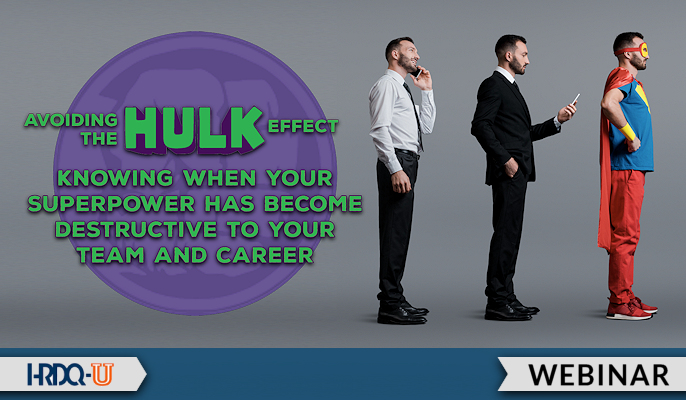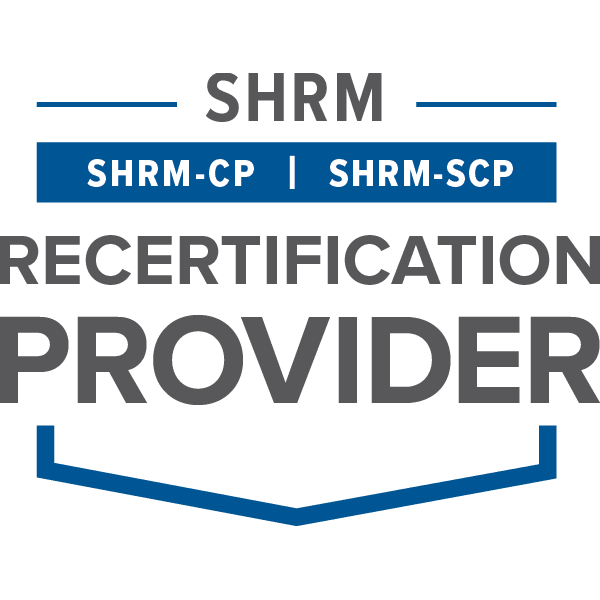- 827 Lincoln Ave. #B-10 West Chester, PA 19380
- support@hrdq.com
- +1-610-279-2002
Quick Links
Menu
Featured Topics
Menu
Total Results
We could not find what you're looking for. Please try again.No Record Found

If you are a successful leader, then you have a wonderful leadership superpower that came from early life experiences that you’ve been honing for decades. This leadership superpower is responsible for your incredible results and for your success. It’s that ability you unleash to save the day when put in a stressful situation. But like the Hulk, your power can become too strong and leave a path of destruction. When your leadership superpower gets triggered by strong emotion, your strength can cause turmoil and become the source of your most cringe-worthy leadership moments. It can negatively impact your team members, become the topic of awkward developmental feedback conversations, and be identified as a possible career derailer.
All high-potential leaders have a superpower, but they learn how to harness it. In this webinar, you will identify your superpower and learn the advantages it brings to your leadership and career. You will also learn how to identify the emotional triggers that fuel each superpower’s overuse and the type of destruction each superpower exhibits. We will also discuss the origins of your superpower. You’ll leave the session with insights that will allow you to start taming your power to remain more superhero than a villain.


Carlann Fergusson is an executive coach, behavioral change expert, and owner of Propel Forward LLC. Her guidance is based on coaching, training, and selecting hundreds of executives across diverse companies, and her own journey through the executive ranks. Carlann is also honored to influence future executives as an adjunct instructor for Northwestern University’s Leadership Program, where she received Northwestern’s School of Professional Studies Distinguished Teaching Excellence Award. Her book, The Insightful Leader: Find Your Leadership Superpowers, Crush Limiting Beliefs, and Abolish Self-Sabotaging Behaviors, received endorsements from Marshall Goldsmith, New York Times #1 Best-Selling Author, and Jack Stahl, former CEO of Revlon, and The Coca-Cola Company.
Carlann has been a featured guest on ABC News Radio, Wharton Business Radio, The Mel Robbins Show, and iHeart Radio. Carlann resides in Orlando, Florida with her husband, who works for Disney. They shamelessly lure their children and grandchildren into family visits with free park tickets.
Training Tools for Developing Great People Skills
This event is sponsored by HRDQ. For 45 years HRDQ has provided research-based, off-the-shelf soft-skills training resources for classroom, virtual, and online training. From assessments and workshops to experiential hands-on games, HRDQ helps organizations improve performance, increase job satisfaction, and more.
Learn more at HRDQstore.com

Sign up to be notified of upcoming live webinars, in-depth workshops, podcasts, blog posts, promotions and much more. Stay ahead of the curve and subscribe for FREE today!